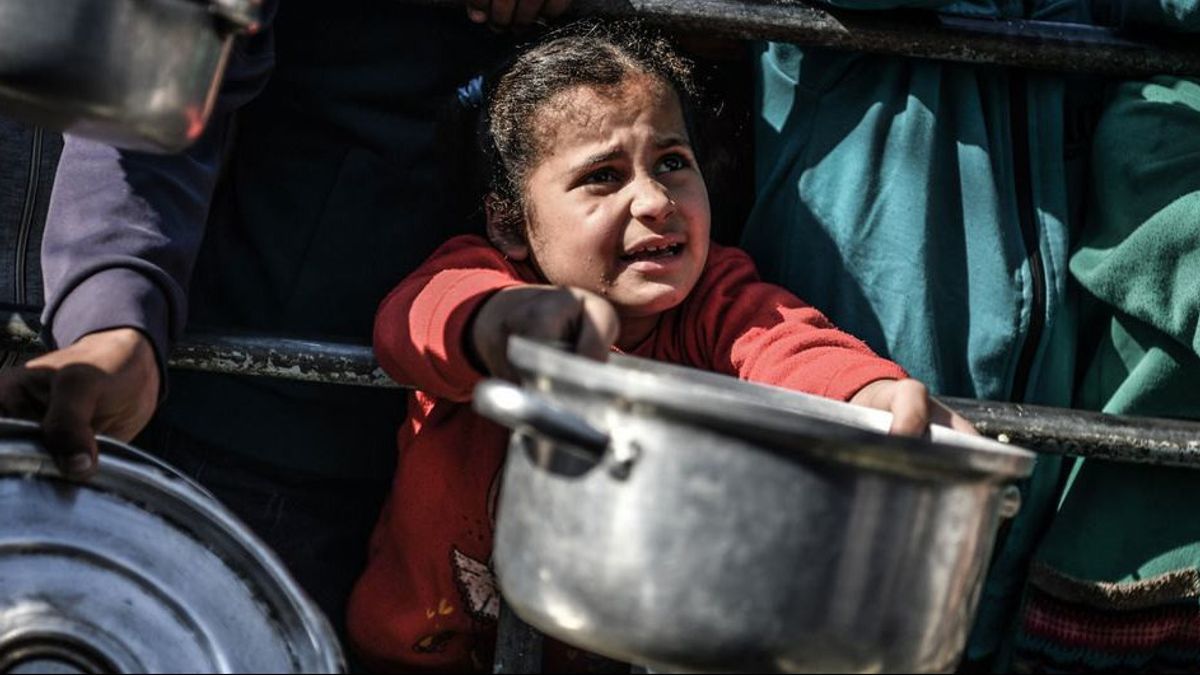JAKARTA - Food supplies to Gaza have declined sharply in recent weeks as the Israeli government has introduced new customs rules on a number of humanitarian aids.
Israel separately also reduces shipments made by business people, who are involved in shipping goods to war-torn territories.
This new customs rule applies to a convoy of trucks chartered by the United Nations to bring aid from Jordan to Gaza via Israel.
"Based on these rules, individuals from aid organizations who send aid must complete a form that provides passport details, and receive responsibility for any false information in the post," said a source quoted by Reuters, Wednesday, October 2.
The source said aid agencies were concerned with the terms, which were announced in mid-August, as they feared signing the form could get staff into legal trouble if aid fell into the hands of Hamas or other Israeli enemies.
As a result, shipments did not arrive via the Jordanian route the main supply route of Gaza for two weeks.
The dispute did not affect shipments through Cyprus and Egypt, the source said.
In parallel, Israeli authorities have restricted commercial food shipments to Gaza amid concerns that Hamas is benefiting from the trade, people familiar with the matter and industry sources said.
UN data and the Israeli government show that in September, food and aid deliveries slumped to their lowest point in seven months.
Israel's military humanitarian unit, Cogat, which oversees aid and commercial deliveries to Gaza, confirmed that no UN rental convoy has moved from Jordan to Gaza since September 19.
But a spokesman said Israel did not block the items.
The spokesman referred questions about the form dispute to the Israeli Ministry of Economics.
A spokesman for the UN emergency response agency, the Humanitarian Affairs Coordination Office (OCHA), declined to comment. Coup did not answer specific questions about commercial delivery.
SEE ALSO:
These double restrictions, which have never been reported before, have revived concerns among food insecurity workers that are widespread to exacerbate 2.3 million Gazans trapped in Palestinian occupied territories.
"The lack of food is one of the worst things ever to happen during the war, especially in recent weeks," Nour al-Assi, a doctor who worked in southern Gaza, told Reuters.
"We thought we could control this disease, but the situation got worse. My clinic treats 50 children every day due to various problems, injuries, and disease. On average 15 of them are malnourished," he added.
The number of trucks carrying food and other items to Gaza fell to an average of around 130 trucks per day in September, according to Cogat statistics.
The number is still below about 150 trucks recorded since the start of the war, and is far from the 600 trucks per day that the US International Development Agency says are needed to address the threat of wartime hunger.
The English, Chinese, Japanese, Arabic, and French versions are automatically generated by the AI. So there may still be inaccuracies in translating, please always see Indonesian as our main language. (system supported by DigitalSiber.id)

















